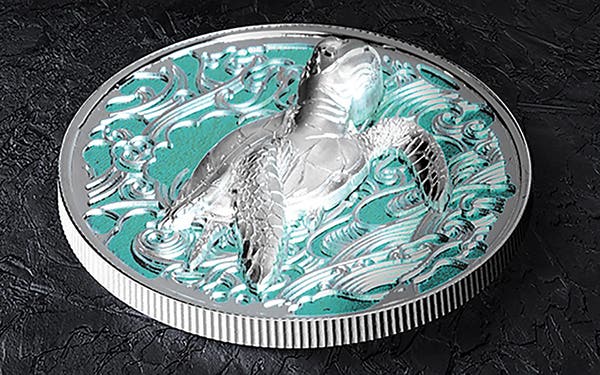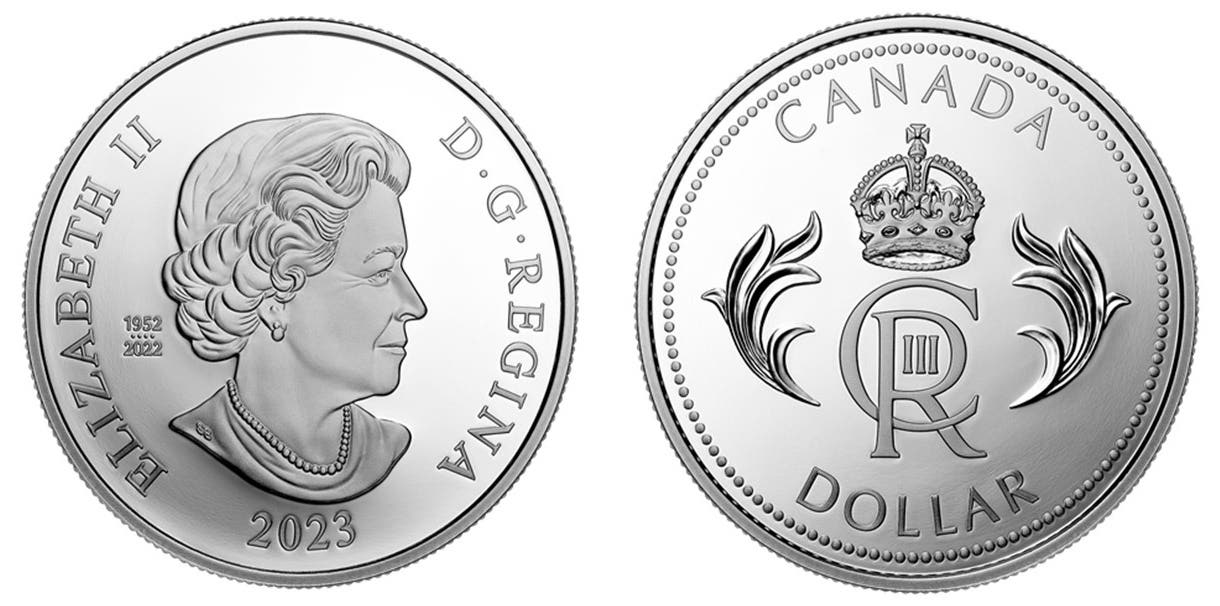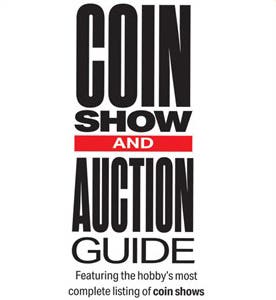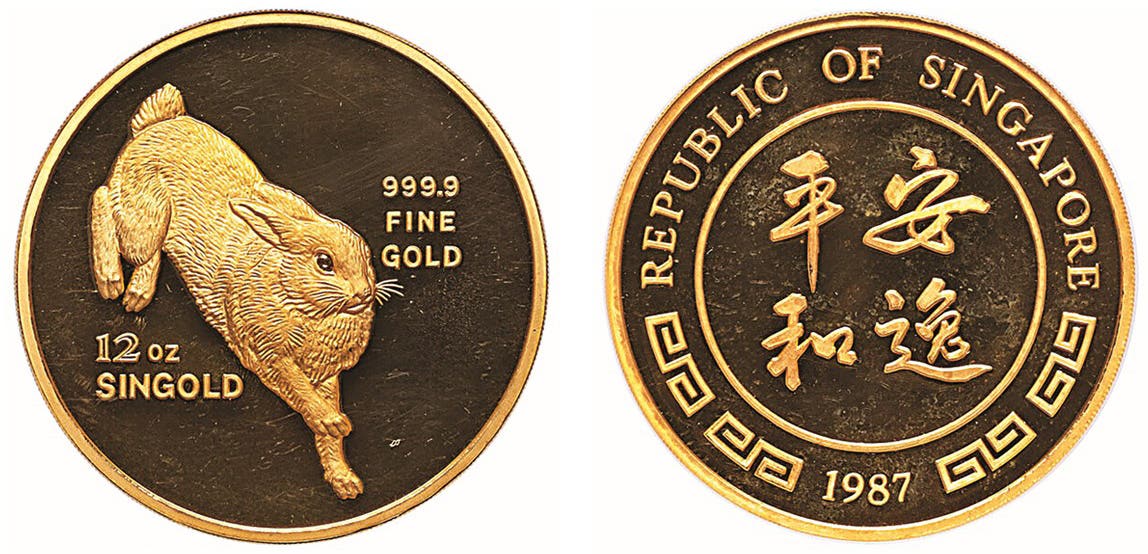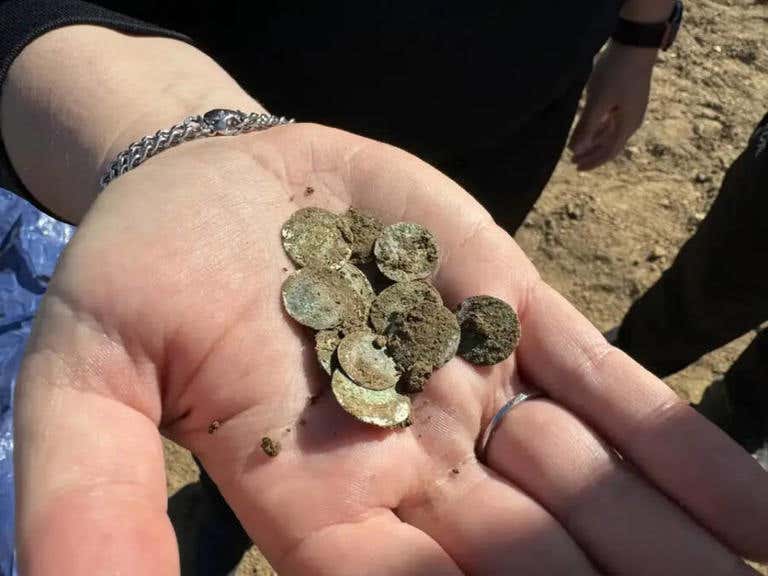Bronze 1943 Cent Featured at FUN Auction
The Florida United Numismatists is hosting its Summer FUN Show from July 11 to 13 at the Orange County Convention Center in Orlando and as part of that event Heritage…
The Florida United Numismatists is hosting its Summer FUN Show from July 11 to 13 at the Orange County Convention Center in Orlando and as part of that event Heritage Auctions will be hosting the official auctions.
Perusing the auction lots for the U.S. Coins Signature Auction was quite a treat, as there seem to be a number of lots that have already begun to drum up impressive bids.
A 1943 Lincoln Cent, one of the few struck on the bronze planchet, certified XF45 PCGS currently sits at $90,012. Across the two major grading services, just 2 are known in this grade, with 15 in higher grades. In 2017, Ira & Larry Goldberg Auctioneers sold a similar coin, graded PCGS EF-45 PQ, CAC certified, for $165,000. This current example shows some light wear on the strongly impressed design elements and there is some softness on the date, but for such a sought-after rarity, it’s sure to drum interest at the auction.
The most collectible of the three 1804 Small Over Large 8 half eagles, a BD-7 is up for auction. Previous results date back to January 12, 2014 when an MS-63 NGC realized $32,900 at that FUN Signature Auction. That example was from the Donald Bentley Collection. PCGS reports four in this grade, with two higher. At NGC, ten examples have been seen, with just two higher.
An interesting octagon-shaped 1852 $50 issued by the U.S. Assay Office of gold, under the direction of Moffat & Co is up for bid. The coin, known as an Augustus Humbert, is graded AU-50 by NGC. An auction price realized by Heritage Auctions of $49,937.50 in 2012 for an AU50 NGC has us wondering what this privately-issued coin will go for. In Mint-state conditions, other examples have sold for $250,000+.
For those interested in dimes, an extremely rare 1835 JR-4 Bust dime, graded PF65 is being offered. While the JR-4 is readily accessible as a business strike, proofs are far rarer. Heritage states that certainly there are more than the two coins suggested (confirmed?) by Breen in his Proof Encyclopedia, but many estimates today put the surviving total at 10 pieces or slightly lower.
Watch for an 1880 Morgan dollar, PR67 PCGS. CAC. with spectacular toning and visual appeal, according to Heritage Auctions’ description. A proof Morgan dollar is the ultimate representation of one of the most famous designs in American numismatics. The 1880 is the best issue in the series for type collectors looking for an example in this format. More proofs were produced that year than any other (1,355 specimens).
This Superb Gem proof has been endorsed by CAC for its quality within the grade, and deservedly so. Dusky lavender and golden patina turns to eye-catching shades of orange, rose-violet, and cobalt-blue when rotated under a light source. Moderate contrast also becomes more apparent.
A 1949 Franklin Half dollar, MS67 will full bell lines that is currently tied for the finest at PCGS and NGC is sure to turn some heads and draw some serious bidders out. Finding sharply struck Full Bell Lines in MS-64 and MS-64 poses less of a challenge than a Superb Gem. In fact, only four are graded as such at PCGS and just one at NGC. Two of those five carry green CAC stickers, including this example.
With just 510 of the 1877 Proof twenty cent pieces minted, one would be surprised at the overall survival rate, which is estimated to be more than half of the mintage. Heritage will be offering an 1877 PR63+ Cameo designated coin, which is very difficult to locate. In fact, this is one of only three Select Cameo proofs so-designated at PCGS. According to Heritage, both sides are sharp and well-contrasted. An 1877 twenty cent graded PR63 (no plus) Cameo sold at the 2017 Long Beach Expo U.S. Coins Signature Auction for $19,975, so it will be interesting to see where the bidding closes on this example.
An 1855 Seated Liberty dollar will draw a few nods from bidders. The specimen being offered is noted as Reflective MS62 and is noted as a low-mintage circulation strike. This is said to be a rarity, as proofs and circulation strikes were struck from the same die pair, making the identification of 1855 circulation strikes subjective. Seated Liberties continue to be a challenge to collectors to this day. The population is listed as 12 in 62, with 8 finer. In January 2017, an 1855 Seated Liberty dollar, also MS-62, was sold by Heritage Auctions at its FUN U.S. Coins Signature Auction for $13,512.50. That example was listed as 10 in 62.
For those looking to add dollars to their collections, another specimen that should be highlighted is an 1836 Gobrecht dollar. Designed by Christian Gobrecht, the coin carries C. GOBRECHT F in the base of the Seated Liberty, as Mint Director Patterson ordered that it be added just before production began. 1836 was the only year this coin was produced with Gobrecht’s name in the base, as it was omitted in the 1839 issue.
The example being offered at the auction is listed as PR63+ by NGC and has a Judd-60 Original classification attached. Heritage describes the coin as having surfaces that are notable for the depth of reflectivity found in the fields, mirroring that is never seen on Die Alignment I dollars. In April 2018 a similar specimen, with Judd-60 grades PR63 sold at the CSNS U.S. Coins Signature Auction for $48,000. The example being offered at FUN currently holds an online bid of $16,000.
To view all of the 1,906 lots currently listed, visit www.ha.com.



